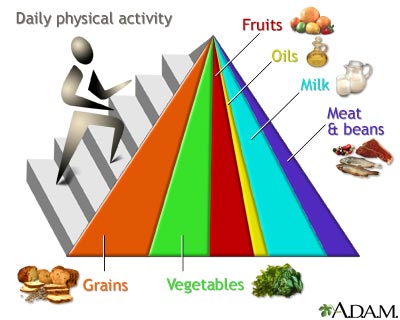Treatment
The only proven treatment for a food allergy is to avoid the food. If you suspect you or your child has a food allergy, consult an allergy specialist.
If you have symptoms on only one area of the body (for example, a hive on the chin after eating the specific food), you may not need any treatment. The symptoms will likely go away in a brief time. Antihistamines may relieve the discomfort. Soothing skin creams may provide some relief.
Consult your doctor if you think you have had an allergic reaction to food, even if it is only a local reaction.
Anyone diagnosed with a food allergy should carry (and know how to use) injectable epinephrine at all times. If you develop any type of serious or whole-body reaction (even hives) after eating the offending food, inject the epinephrine. Then go to the nearest hospital or emergency facility, preferably by ambulance. Seek immediate medical attention after injecting epinephrine for a food reaction.

Support Groups
Food Allergy and Anaphylaxis Network — www.foodallergy.org
Prognosis (Expectations)
Avoiding the offending foods may be easy if the food is uncommon or easily identified. However, you may need to severely restrict your diet, carefully read all package ingredients, and ask detailed questions when eating away from home.
Complications
Anaphylaxis is a severe, whole-body allergic reaction that is life-threatening. Although people with oral allergy syndrome rarely have an anaphylactic reaction, they should ask their doctor whether they need to carry injectable epinephrine.
Food allergies can trigger or worsen asthma, eczema, or other disorders.
Calling Your Health Care Provider
* Call your local emergency number, such as 911, if you have any serious or whole-body reactions (particularly wheezing or difficulty breathing) after eating a food.
* If your doctor prescribed epinephrine for severe reactions, inject it as soon as possible, even BEFORE calling 911. The sooner you inject the epinephrine, the better.
* Anyone who has had an allergic reaction to a food should be evaluated by an allergy specialist.
Food allergy: Overview, Causes
Food allergy: Symptom & Signs, Diagnosis & Tests
Food allergy: Treatment
Review Date : 4/23/2009
Reviewed By : Stuart I. Henochowicz, MD, FACP, Associate Clinical Professor of Medicine, Division of Allergy, Immunology, and Rheumatology, Georgetown University Medical School. Also reviewed by David Zieve, MD, MHA, Medical Director, A.D.A.M., Inc.
